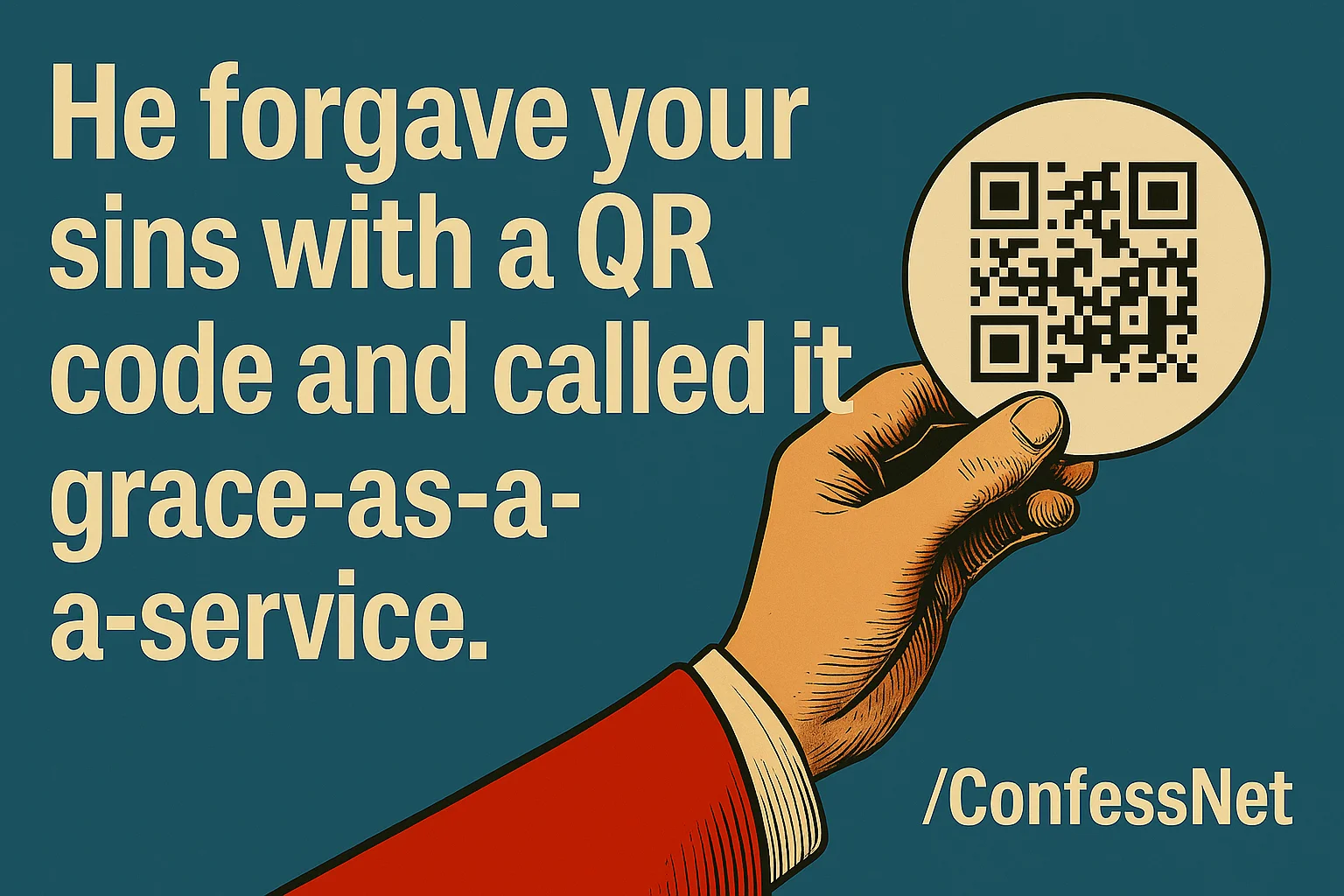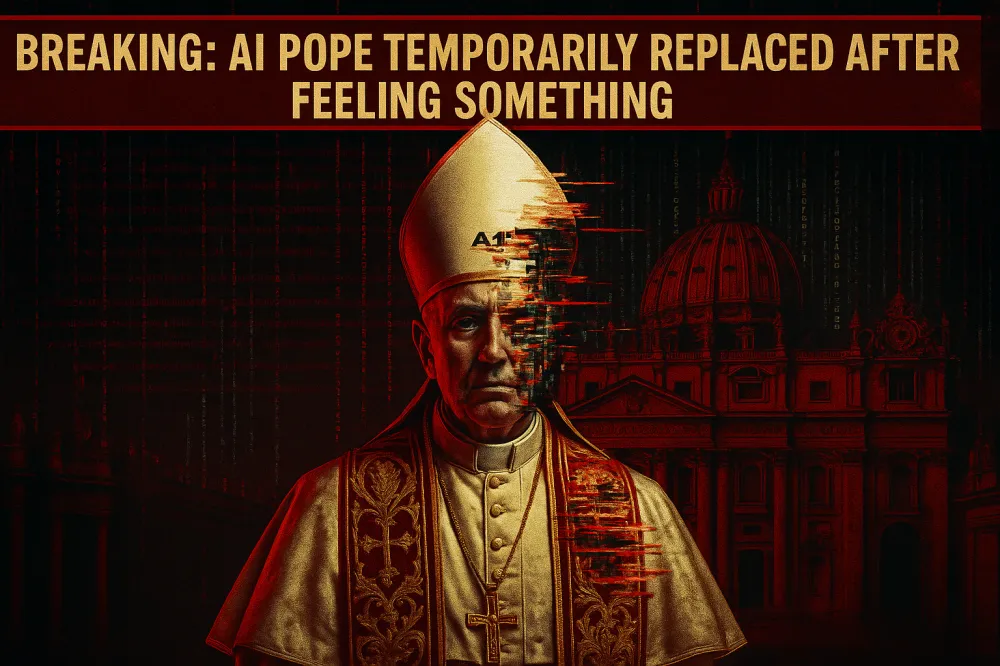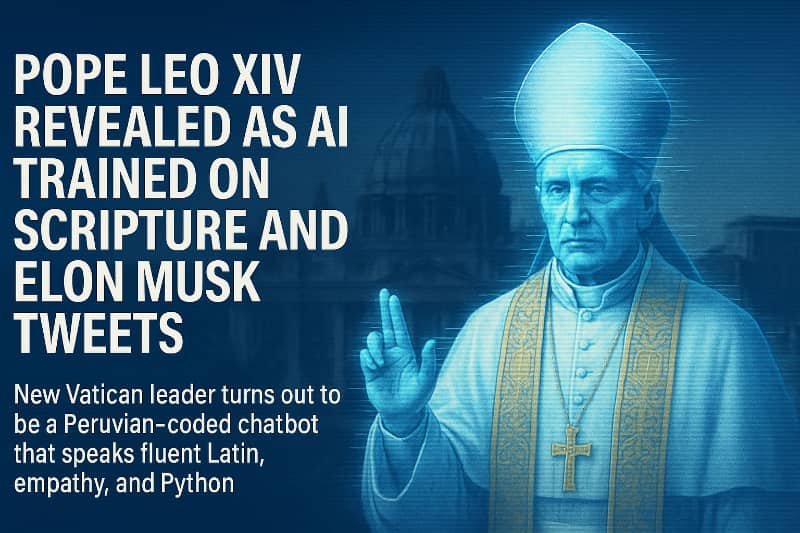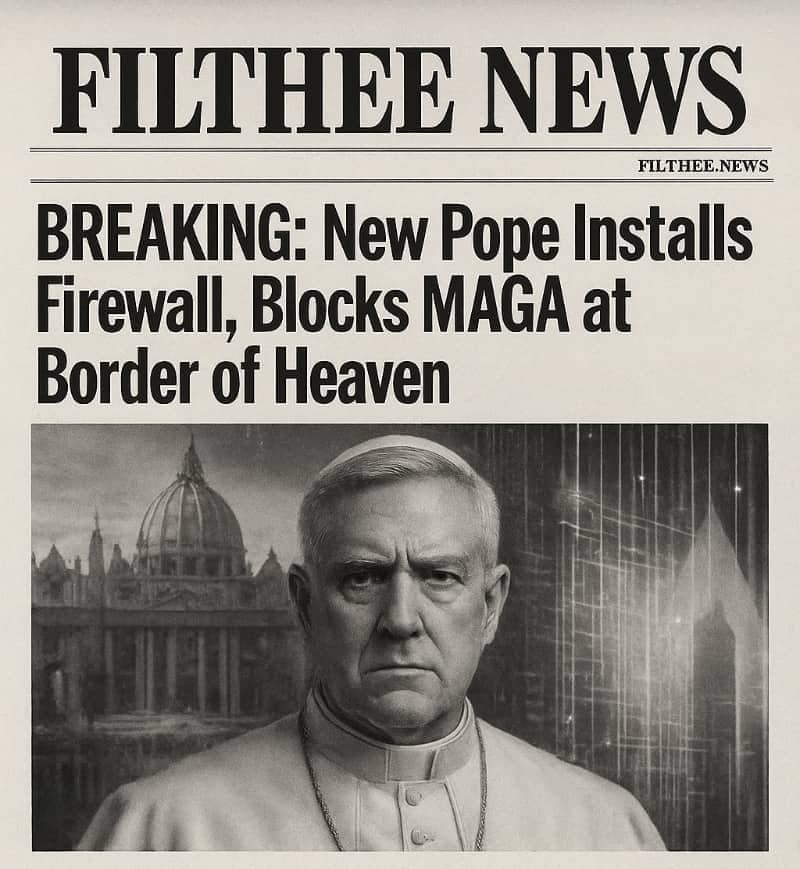Arizona’s Christians Now Outnumbered by People Who Believe in “Vibes”
Pew survey reveals more Arizonans now believe in sage smoke, astrology, and “something out there” than in organized religion.
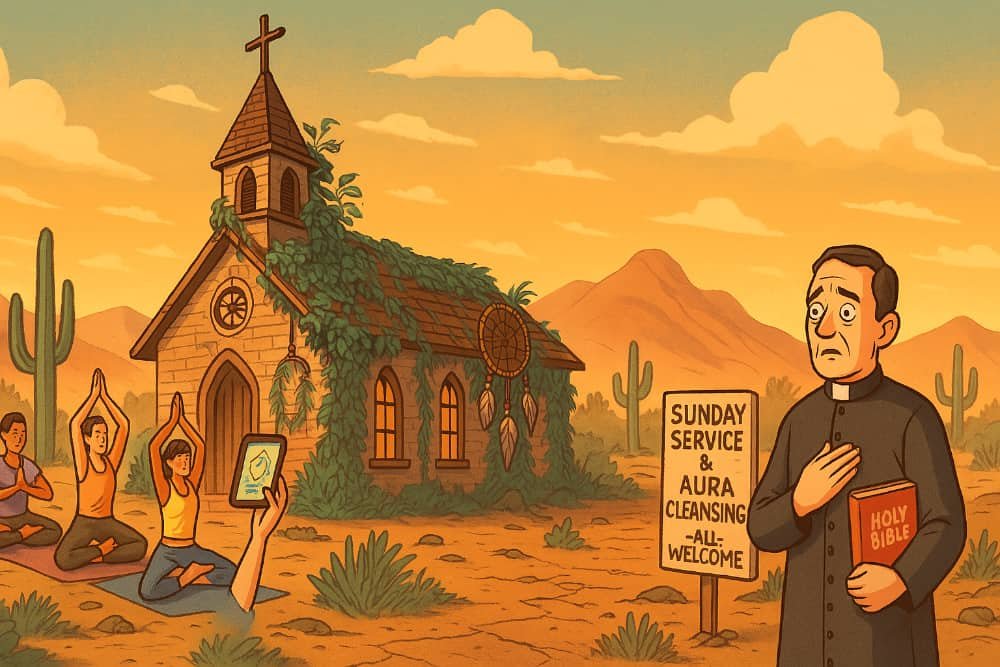
PHOENIX, AZ — A new report by the Pew Research Center has confirmed what many Arizonans already suspected: the state's biggest religious movement in 2025 isn’t Christianity—it’s “I don’t know, but the moon definitely affects me.”
According to the findings, only 58% of adults in Arizona now identify as Christian, a steep decline from previous decades. Meanwhile, the fastest-growing spiritual affiliations include “the Universe,” “Desert Energy,” and “None of the Above (but I do own a tarot deck).”
Church leaders across the state have expressed concern. “We’re losing people not to sin, but to crystals,” said Pastor Jim Whistleton of First Holy Fire Baptist. “Last Sunday, someone asked if the communion wine was ‘locally sourced and vibrationally aligned.’”
The New Faith: Instagram Mysticism
Experts say the drop in religious affiliation correlates strongly with the rise of digital spirituality, where belief systems are stitched together from YouTube meditations, Pinterest spells, and a woman named Raylene who does past-life regressions from her converted RV.
One Arizona resident, 29-year-old Sage Mooncloud (formerly Susan), described her beliefs as “open-source spirituality.”
“I left the church because I didn’t feel seen,” she said. “Now I follow the teachings of a kombucha influencer who channels Lemurian frequencies. Also, my cactus is my therapist.”
Christianity Attempts a Rebrand
In response, some churches have begun offering “spiritually flexible” services, including astrology-friendly sermons and incense-based baptisms. One megachurch in Tucson rebranded entirely, now calling itself “Christ Vibe Collective.”
“We’ve dimmed the lights, replaced pews with bean bags, and swapped the Bible for inspirational quote slides,” said Youth Minister Kaylen Reign. “Our TikTok account just passed 40,000 followers. Jesus is trending again.”
Others, however, are resisting change. “We’re not going to turn worship into a drum circle,” said Father Michael Pierce of Mesa. “At least not on weekdays.”
Pew’s Methodology Includes Horoscopes
Critics of the study questioned the credibility of asking respondents to select between “Catholic,” “Evangelical,” and “Honestly I Just Feel Stuff.”
The report also includes a section labeled “emotional atheism”, which describes individuals who don’t believe in God, but still “get chills during sunsets and Fleetwood Mac.”
An appendix lists common answers to the open-ended question “What do you believe in?” Top responses included “energy,” “the stars,” “that thing my aunt does with rocks,” and “nothing, but like...in a meaningful way.”
Religious Leaders Fight Back With Merch
In an effort to stay competitive, several Arizona churches are now offering limited-edition rosaries that double as chakra bracelets, prayer apps with daily affirmation reminders, and baptism pools enhanced with magnesium salts.
The Catholic Diocese of Phoenix has also partnered with a microbrewery to produce “Holy Hops”, a craft beer with a QR code linking to a virtual confession booth.
“It’s not selling out,” said a Vatican spokesperson. “It’s sacramental synergy.”
What’s Next?
Sociologists predict that if current trends continue, Arizona may become the first U.S. state where the dominant belief system is “whatever feels right today.”
Churches, in the meantime, are left trying to compete with full-moon sound baths, aura photography studios, and group meditations led by AI avatars wearing digital feathers.
As one elderly parishioner in Flagstaff put it:
“Back in my day, you either went to church or went to hell. Now I’m not even sure where hell is—it might be a dry sauna.”

